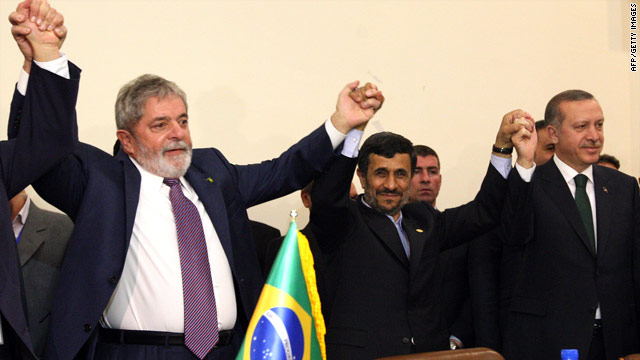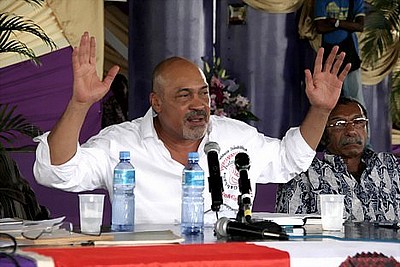By Patrick Vanderpool
Impunity Watch Reporter, South America

SÃO PAULO, Brazil – Brazilian President Luiz Inácio Lula da Silva has called on Iranian President Mahmoud Ahmadinejad to send an Iranian woman facing execution by stoning to Brazil, where she would be granted asylum.
The Brazilian President, known popularly as Lula, shares a friendship with President Ahmadinejad and was quoted as saying “nothing justifies the state taking someone’s life, only God can do that.”
The woman facing execution, 43 year old Sakineh Ashtiani, was convicted of adultery in 2006, although she denies having any extramarital relationships. An international public campaign has been forged against the execution. Lula is being specifically targeted as a means to stop the execution because the two leaders have developed a personal connection since Brazil undertook diplomatic efforts supporting Iran’s uranium enrichment activities a year ago.
In Brazil, citizens have held protests expressing their concern with the human rights issues that are at stake with Ashtiani’s case. Brazilian citizens have also circulated a petition to garner support for their cause. The petition contains more than 114,000 signatures, including signatures from many Brazilian celebrities. Initially, Lula was not willing to intervene and claimed that Iran’s laws and decisions needed to be respected.
The United States is standing behind Brazil’s efforts and is urging President Ahmadinejad to consider Lula’s offer. Philip Crowley, spokesperson for the Department of State, said “[i]f Brazil is willing to accept… this woman, we would hope that Iran would consider that as a humanitarian gesture.”
While Lula has previously lobbied President Ahmadinejad to free foreign prisoners when human rights issues were involved, the stoning situation marks the first time that the Brazilian President has interfered after Iranian law was applied to an Iranian citizen.
According to a recent report in the Jahan News, an Iranian newspaper, President Ahmadinejad is not entirely open to Lula’s offer. The report referred to the Brazilian President’s offer as a “strange request” and said it amounted to “interference in Iran’s national affairs.” Although there are reports that the Iranian Government have agreed not to stone Ashtiani to death, other forms of execution are still a reality, including beheading and hanging.
For more information, please see:
AOL News – Report: Iran Cool To Brazil’s Asylum Offer in Stoning Case – 3 August 2010
AFP – US Backs Brazil Asylum Offer For Iran Woman Facing Stoning – 2 August 2010
NY Times – Brazil’s President Offers Asylum To Woman Facing Stoning In Iran – 1 August 2010
Reuters – Brazil Offers Asylum To Iranian Woman Facing Stoning – 31 July 2010

